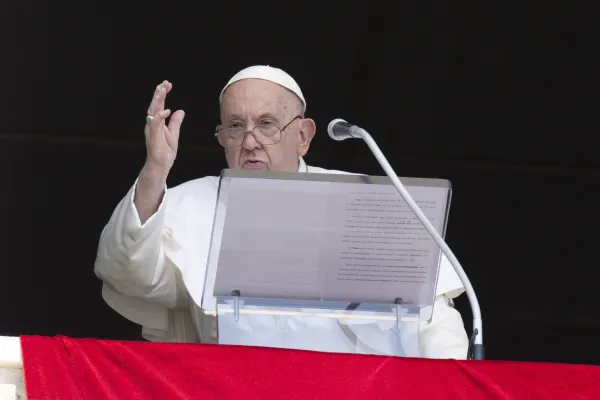
Pope at Angelus: Welcome the Gift of Heavenly Bread found in Jesus
Pope Francis addressed pilgrims and visitors for the midday Angelus, offering his traditional reflections on the Sunday Gospel, which today speaks of Jesus who, after multiplying the loaves of bread, tells the crowds, "I am the living bread that came down from heaven".
The Gospel recounts how some argued over what Jesus meant by this and how He could offer His own flesh as nourishment, a question the Pope said we can also ask ourselves today, but with an attitude of wonder and gratitude.
Open to the Wonder
The Pope explained how an openness to wonder is needed by all, and not of suspicion as recounted of those who argued about the matter in the Gospel. He noted how Jesus, in speaking of Himself as the "bread from heaven", is a gift that "exceeds all of our expectations", as His flesh and blood to which He refers are "the humanity of the Savior, His very life offered as a nourishment for our own".
Leading to Gratitude
By appreciating how Jesus is offering His entire life, flesh and blood, for our salvation and everlasting spiritual nourishment, we can only be grateful, the Pope remarked, as "we recognize Jesus where He makes Himself present for us and with us".
"Christ, the true man" knows of our need to eat in order to live, but food for our stomachs is not enough, the Pope explains, as Jesus "prepares an even greater gift: He Himself becomes true food and true drink", and for this we can only say "thank you, Lord Jesus!"
The "heavenly Bread" from the Father is Jesus made flesh and satisfying the hunger "in our hearts" - our hunger for hope, truth, and salvation - that only the Lord can satisfy.
Eternal Nourishment
Thanks to the Lord "we can live in communion with God and among ourselves" the Pope concluded, as Jesus saves us, "nourishing our lives with His forever." This "living and true Bread" however does not simply solve all our problems in life, but they give immense hope in our world that often deprives the poor of their daily bread.
The Pope then recommended we ask ourselves if we hunger and thirst for salvation not only for ourselves but for others as well. And when we receive the Eucharist, do we have a sense of awe before "the Body of the Lord, who died and rose again for us, offering this 'miracle of mercy'?"
“Let us pray together to the Virgin Mary, that she may help us to welcome the gift of heaven in this sign of the bread.”



Leave a Comment